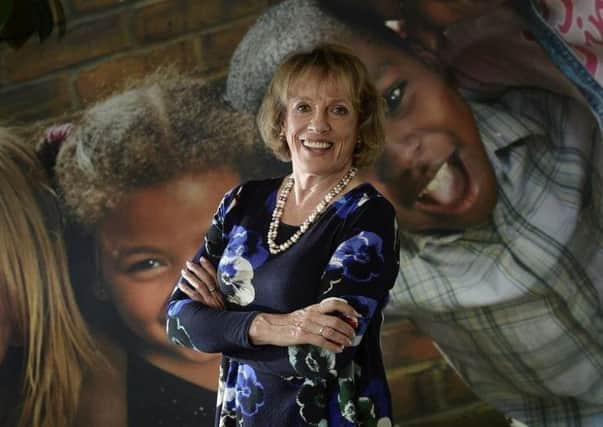ChildLine reports shock rise in child-on-child sex abuse calls


The national children’s charity held 3,878 counselling sessions with young people concerned about sexual abuse among peers last year, an increase of 29 per cent on the previous year.
Furthermore, volunteers at Childline’s Leeds’ online base, which handles calls from around the UK, saw an increase of 63 per cent, with an increase from 92 sessions in 2016/17 to 150 in 2017/18. The true scale of the problem “could be much worse”, the charity said, as “many children and teenagers do not understand what has happened to them is abuse”.
Advertisement
Hide AdAdvertisement
Hide Ad“Young people who contacted Childline about peer-on-peer sexual abuse revealed a lack of understanding about consent, with some feeling unsure about whether something is abuse if they are in a relationship,” a Childline spokeswoman added.
Dame Esther Rantsen, the charity’s founder and president, said: “Young people tell us that they have been compelled to take part in behaviour against their will, which sometimes involves them suffering violence.
“We know that relationships can be confusing and it can be hard to know if the dynamic is changing and things are starting to go wrong. If you ever feel pressured to do something you don’t want to, we urge you to get support, either from a friend, a trusted adult or Childline.”
Childline, which is run by the NSPCC, has relaunched its #ListenToYourSelfie campaign to try to prevent sexual abuse between children and to encourage young people who have been abused by a peer to speak up.
Advertisement
Hide AdAdvertisement
Hide AdThe charity has shared the testimony of a 14-year-old girl who contacted them about her boyfriend, who was “sometimes violent” and forced her into “doing sexual things when (she) didn’t want to.”
The teenager told Childline: “It wasn’t always this way but it’s been going on for a few weeks now and I’m worried it’s going to get worse.”
She added: “I’m scared of how he would react if I tried to end the relationship. I don’t feel like I can speak to someone without my parents or friends at school finding out. I’m really scared.”
The #ListenToYourSelfie campaign sees the charity work with the International Centre for Child Protection, at the University of Kent, to promote the online tool ‘Looking Out for Lottie’.
Advertisement
Hide AdAdvertisement
Hide AdLottie’s story aims to help young people spot when a relationship might not feel quite right and to recognise early signs of grooming, through a series of social media posts, messages from her friends and private messages from boyfriend Jake.
The campaign also includes two short films based on real-life scenarios affecting young people, which aim to help young people to understand the importance of consent and their right to say ‘no’ if anything makes them feel uncomfortable or anxious.
The NSPCC is calling for relationships education in primary schools and relationships and sex education in secondary schools to cover what constitutes abuse and how to recognise signs of it.
Children worried about sexual abuse between peers can call Childline on 0800 11 11.
Advertisement
Hide AdAdvertisement
Hide AdLast month North Yorkshire Police set up a dedicated team investigating online child abuse. The Online Abuse Team is expected to speed up investigation time, improve evidence gathering, and increase the rate of guilty pleas.